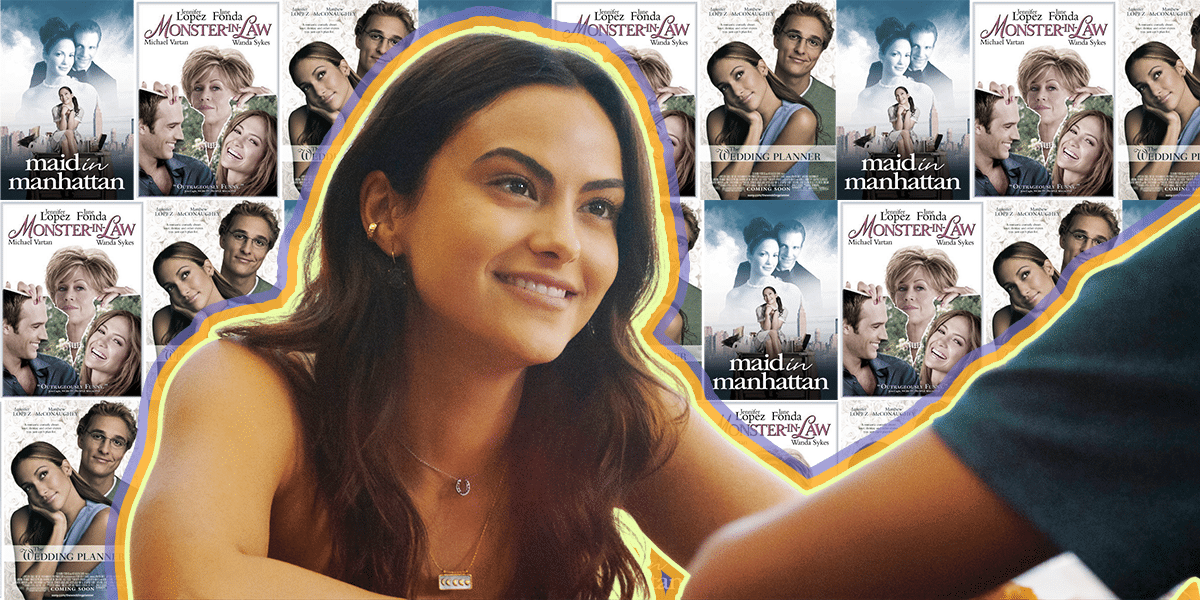Some of my fondest memories as a child were cuddling my mom on the couch on a Friday or Saturday night to watch early 90’s and 2000’s rom-coms with buttery popcorn and DOTS. As a six-year-old obsessed with She’s the Man and A Cinderella Story, I became a hopeless romantic. My definition of love coming from these movies.
Long blonde hair, pale skin, and blue eyes. Three things I wished I had growing up because according to early 2000’s romantic comedies, those were the girls that got the guy. 13 Going on 30. 50 First Dates. How to Lose a Guy in 10 Days. The Notebook. Sweet Home Alabama. Love Actually. 10 Things I Hate About You. Movies full of meet cutes, second-chances, enemies to lovers, and white love.
A majority of the rom-coms that Hollywood creates feature two white leads, their relationship problems, and slow-burning romance. As per the 2022 Hollywood Diversity Report by UCLA, within all movie genres, just 2.2 out of every 10 lead actors are people of color. With how ethnically diverse the US population is, this lack of representation is appalling. Even when people of color do show up, they’re often stuck in supporting roles, just think of Clueless (1995) with the only two Black characters Dionne and Murray supporting Cher and her antics.
Long blonde hair, pale skin, and blue eyes. Three things I wished I had growing up because according to early 2000’s romantic comedies, those were the girls that got the guy
Angélica Escobar
This pattern led me to believe at the age of six that straight white people were the only ones worthy of love. Even when a Latina like me was given a romantic comedy lead, she often played a white woman, was saved by a white man, or played a stereotype.
The only representation I got in rom-coms growing up was JLo. With movies such as The Wedding Planner (2001), Gigli (2003), Maid in Manhattan (2002), and Monster-in-Law (2008), she was all over the early 2000’s romantic comedy scene. But she was a casualty of Hollywood’s Latina stereotype and the pretend need for them to whitewash her. Take for example, The Wedding Planner (2001) – it is a classic and personally one of my favorites with Jennifer Lopez as the star. But Lopez plays an Italian-American, aka a white woman as if only then would she be worthy of love. And Matthew McConaughey’s character, Steve, ends up saving her as if Jenny from the block can’t solve her own problems.
The next year, in 2002, we got Maid in Manhattan, another classic rom-com starring Lopez. Here, she plays a stereotype – a single mom and a maid. I’m not here to say anything is wrong with that, but Latinas can do more than just be maids, mothers, hustlers, and service workers. I see this every day when I look at my mom (a teacher), tia (a child psychologist), and so many other powerful Latinas in my life. We shouldn’t be subjected to representation that is so stuck in limited ideas about who we can be.
Even when a Latina like me was given a romantic comedy lead, she often played a white woman, was saved by a white man, or played a stereotype
Angélica Escobar
Nothing got better a couple years later when in Monster-in-Law (2008), the leading man’s grandmother refers to Lopez’s character Charlie with this line, “He went out and found himself an exotic Latina.” Who is that nonsense for? I do not see myself or other Latinas as “exotic” or “fiery” – I see us as people, beautiful, flawed, and worthy of love.
Times are slowly changing in the 21st Century. Now we’re getting more people of color in rom-coms like Always Be My Maybe (2019), Someone Great (2019), Father of the Bride (2022), The Perfect Kind (2023), What Men Want (2019), etc. I particularly liked Upgraded (2024), which stars Brazilian-American Camila Mendes as Ana Santos, an auction house intern turned assistant who secures a work trip to London with her boss. Although Santos is broke, she is exposed to the luxuries of the art world and gets ahead in her career without the help of a white guy. Not to mention, her love interest William, played by Archie Renaux, is Anglo-Indian and does not save her at all. All of which makes it very different from the previous decades’ rom-com plots.
Coming from the CW teen drama, Riverdale (2017), Mendes has been booked and busy since that show ended, particularly in the rom-com and teen scene. Within the past two years, she starred in movies Do Revenge (2022), Upgraded, and now Música (2024). Having premiered at SXSW, Música is a musical based on writer/director/star Rudy Mancuso’s own life. Mendes plays Mancuso’s love interest and the film is enriched with Brazilian culture throughout.
Like JLo in the early 2000s, Mendes is giving representation to Latinas, even embodying Jlo’s knack for creating feel-good rom-coms. But, unlike JLo, Mendes appears to have more choices, playing all types of Latinas (but never Italians), including at least one who shares her Brazilian American heritage
Angélica Escobar
Like JLo in the early 2000s, Mendes is giving representation to Latinas, even embodying Jlo’s knack for creating feel-good rom-coms. But, unlike JLo, Mendes appears to have more choices, playing all types of Latinas (but never Italians), including at least one who shares her Brazilian American heritage thanks to Música.
Representation matters. We need to see ourselves, our cultures, and our romances on screen. To make that happen, Hollywood needs to hire more producers, writers, and directors of color so there are more films like Música, where those who are making the movie represent new voices, sharing their backgrounds. So actors like Mendes can play their cultures on the screen and so little Latina girls like me don’t grow up wishing to be white when we are perfect just the way we are.

